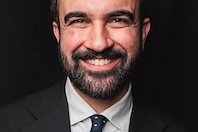Is poverty the problem - or wealth?

David Benjamin Blower
Source: Passio Magazine on Substack
David Benjamin Blower writes in Passio: For many centuries, voluntary poverty was the mark of revolutionary movements of all kinds, not just religious orders
"Have courage, poor of Jesus Christ, since paradise is yours! How unfortunate are the rich, since their riches, if they refuse to share them, will only torment them more and more in hell!" (St Paul of the Cross)
This sounds like a rallying speech from some archaic peasant revolution. It's addressed directly to the impoverished: "paradise is yours!" …and against some "they", the rich, who hold all the aces.
St Paul isn't usually one for hellfire talk. He's captivated by more beautiful visions. But the wrath occasionally comes out quite frankly when talking about wealth and privilege.
For him, wealth is a kind of debt. The only truthful thing to do is to return it. And wherever God suffers lack in the embodied life of anyone, wealth becomes theft. "It would not be just for us to be exempt from the scourge that afflicts the world." In the end, this is the only first world problem.
Among monastic orders there is a framing of poverty that remains strange to our present sensibilities.
"Poverty, of which the world has so great an abhorrence, imparts true joy and is a source of riches in the sight of God."
"Poverty is the glorious standard, the impregnable fortress of the religious life."
Today, poverty is a problem to be solved. For St Paul, wealth is the problem: an unjust and spiritless form of life. Poverty, on the other hand, is the dwelling place of God. "Read the forehead of a poor man and you will find written there the name of Jesus Christ," he says.
I sometimes sense an awkward romanticisation when churches talk about the poor: an image of some group from whom religious institutions might gather a spiritual harvest of virtue through institutional do-gooding. This dissonance feels especially pronounced wherever churches are full of wealth and power-and there has nearly always been treasure hoarded somewhere on the ecclesial map. I've often wondered, as a friend who sometimes visits the Catholic village, how religious orders who embrace voluntary poverty hold this tension. In any case, "the poor," were not some other group to St Paul's order; they were themselves the poor. Poverty, or simplicity, was a rule of the Passionist order, as it still is.
For many centuries before St Paul of the Cross, voluntary poverty was the mark, not only of religious orders but also of Mediaeval revolutionary movements of all kinds, some of which were antagonists of the church. People would sometimes migrate between religious orders and revolutionary groups. These worlds would almost overlap. Vows of poverty have at times been a knife's edge between religious and political radicalism. They carry either an implicit or an explicit critique of hoarded wealth, wherever it happens.
Voluntary poverty feels almost unthinkable outside the peculiar worlds of religious orders and those other rare experiments in communal living that occasionally emerge among radicals and creatives. Religious orders are particularly interesting to me, because they're forms of association that have managed to practise voluntary poverty in sustainable and consistent ways, unlike their fleeting revolutionary siblings.
At this universal crunch point, the question of voluntary poverty, in one form or another, has begun to loom beyond radical religious niches. Communal living and simplicity has often seemed wistfully desirable in certain quarters, but this point it's beginning to look more like necessity. How does ordinary life joyously reduce itself? How to become smaller and more creaturely? Not out of conscientious do-gooding, but out of genuine weariness with the present order of things. I deeply desire a map toward a sustainable and common simplicity. In what ways might the traditions of religious orders offer models and alternative patterns, to ubiquitous boring limitless consumption?
Here is a tension: poverty is a suffering, and the scandal of the world. And, in the life and passion of the peasant Messiah, poverty is the social location of God, of truth, of joy, of authentic transformative possibility, of political integrity, of freedom from entanglement.
I've lived under the poverty line, as it is rather arbitrarily drawn. I've mostly found it miserable and alienating. For St Paul of the Cross, wealth is not the solution but the problem. The answer is mutuality and community. Wealth (or illth, as Ruskin called it) is rarely the gateway into that promised land. The consumer capitalist paradise that has run from the invention of the television and the atomic bomb toward its present unravelling, has left so many of us entirely illiterate in the life-arts of community and simplicity. I see so many people these days, squinting into some future through the eye of a needle, and I find myself oddly drawn to the traditions of religious orders, in search of images of a simple common life.
LINK
Passio Magazine on Substack: www.passiozine.com/p/wealth-is-the-problem-not-poverty


















